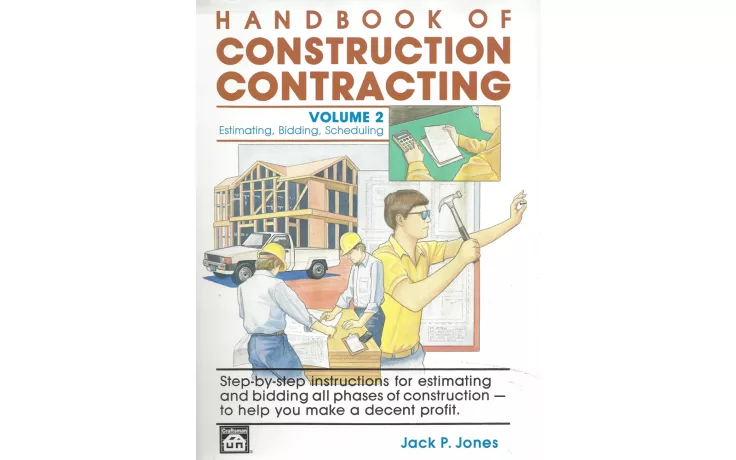MEASURING UP: Can You Really Sell Your Contracting Business?
Many business owners think they will sell their business and use those proceeds to retire. Such thoughts can be driven by a desire to escape the stress of managing a business, the hassle of dealing with employees or just getting bored with the whole process. Or maybe you just want to obtain something out of those years of toil you have put in building your business. Possibly you dream of simply playing golf, going fishing and enjoying the good life. But is your business really saleable?

Many business owners think they will sell their business and use those proceeds to retire. Such thoughts can be driven by a desire to escape the stress of managing a business, the hassle of dealing with employees or just getting bored with the whole process. Or maybe you just want to obtain something out of those years of toil you have put in building your business. Possibly you dream of simply playing golf, going fishing and enjoying the good life. But is your business really saleable? I am no expert on selling businesses, but through the years I have learned some realities that seem to hold true over and over.
In certain instances, a business can be worth more than you might think. This happened several years ago when contracting businesses were being “rolled up” into public stock companies. You also see this with distributors as companies buy up local operations to build a national distribution network. These are unusual situations and such circumstances do not apply to most contracting business sales.
Frequently, contractors call me and tell me a retiring competitor wants to sell his or her business to them, and they ask me what it is worth. My first comment is that the retiring contractor will want too much for it. Only until they find out that no one is willing to pay what they are asking are they willing to lower the price. Human nature is to think something that is yours is worth more than it really is, and until you go through a trial-and-error process to prove this, you are going to find the same is thing true when trying to sell your own business.
All of a sudden you are talking about business succession and estate issues rather than sales scenarios.

In summary, I think we all dream of selling our business just like weekly lottery players imagine that they will hit it big one day. The problem is most people never actually win the lotto. Selling a business is hard work and not so easily done. If you want to exit your business, it is never too late to start an exit strategy. Just like building a business took time, so will trying to get out of one.

Many business owners think they will sell their business and use those proceeds to retire. Such thoughts can be driven by a desire to escape the stress of managing a business, the hassle of dealing with employees or just getting bored with the whole process. Or maybe you just want to obtain something out of those years of toil you have put in building your business. Possibly you dream of simply playing golf, going fishing and enjoying the good life. But is your business really saleable? I am no expert on selling businesses, but through the years I have learned some realities that seem to hold true over and over.
Reality No. 1
Your business is probably not as valuable as you think. Selling your business is not like selling stock in a public company; it is more like selling a family heirloom. You put years of sweat, equity and passion into building your company. How can you put a price on that?In certain instances, a business can be worth more than you might think. This happened several years ago when contracting businesses were being “rolled up” into public stock companies. You also see this with distributors as companies buy up local operations to build a national distribution network. These are unusual situations and such circumstances do not apply to most contracting business sales.
Frequently, contractors call me and tell me a retiring competitor wants to sell his or her business to them, and they ask me what it is worth. My first comment is that the retiring contractor will want too much for it. Only until they find out that no one is willing to pay what they are asking are they willing to lower the price. Human nature is to think something that is yours is worth more than it really is, and until you go through a trial-and-error process to prove this, you are going to find the same is thing true when trying to sell your own business.
Reality No. 2
Would buying your business really be the right option for an investor? If someone has money, is contracting really the kind of investment they would want to make? You might sell your business to a regional competitor who is hoping to move into your market. However, it is tough to share all of your financial information with a competitor. As things stand, some Swiss investor is more than likely not going to come through your door and offer you a fortune for your company.Reality No. 3
Who is most likely going to buy your company? History tells us that your employees or family members employed in the business are your most likely purchasers. This brings an ironic wrinkle to the whole concept of selling your business. If your existing managers are the people most likely to buy your business, then the real issue is not selling your business but rather creating a management team that can run the business without you. Now comes the irony: If that management team can run the business without you and you don’t have to be tied to the business day to day, why do you need to sell it?All of a sudden you are talking about business succession and estate issues rather than sales scenarios.
Reality No. 4
Successors must be groomed and allowed to develop. Many of us would love to pass our business on to our children. Unfortunately, just wanting to do that is not enough, and our children may not be well suited or have the desire to run the business. Business succession is a difficult process whether or not a successor is a family member. Even the perfectly chosen successor will run the business differently from the founder. This creates a scenario where the founder must carefully delegate and let go of certain responsibilities, and the successor gradually runs more and more of the company. Succession usually takes a minimum of three to five years to accomplish, so it is important to start a plan sooner than you might think. Statistics tell us that 30 percent of businesses make it to the third generation, and only 15 percent make it through the third.Reality No. 5
You need a plan. Whether you want to sell your business or turn it over to a successor, you need to plan through the process. Remember, the answer to the plan is really not all that important. Many business owners don’t start a succession or sale plan because they can’t conceive how it will all end up. Planning is the visualization of your goal. This visualization is what is important, not the actual answer. The visualization and actual planning process will help you determine the answer, and that answer may not be what you originally thought it was going to be. However, you are much more likely to succeed when you take the time to think and work through the process. Complicated matters of the heart are not easily worked out. Taking the time to think and work through them helps you avoid horrendous emotional mistakes that can be devastating to correct.
Reality No. 6
Why do you really want to sell your business? Is it too stressful? Do you work too many hours for too little income? Are you bored? Answering these questions may be more important than daydreaming about selling. I have worked with several business owners who came to me wanting to sell the business only to realize that they had nothing to sell. How much is a business worth where you work long hours and little income is generated? Once we fixed their fundamental business problems, they no longer wanted to sell the business. Don’t let the pipe dream of wanting to sell your business create an illusion that keeps you from fixing what is really wrong with your company.In summary, I think we all dream of selling our business just like weekly lottery players imagine that they will hit it big one day. The problem is most people never actually win the lotto. Selling a business is hard work and not so easily done. If you want to exit your business, it is never too late to start an exit strategy. Just like building a business took time, so will trying to get out of one.
Looking for a reprint of this article?
From high-res PDFs to custom plaques, order your copy today!




